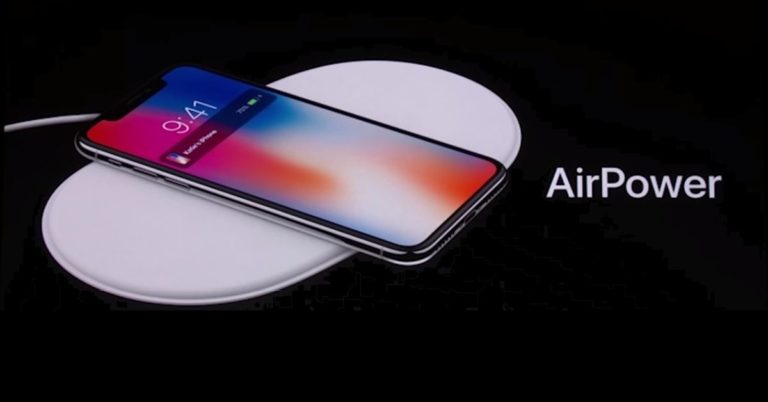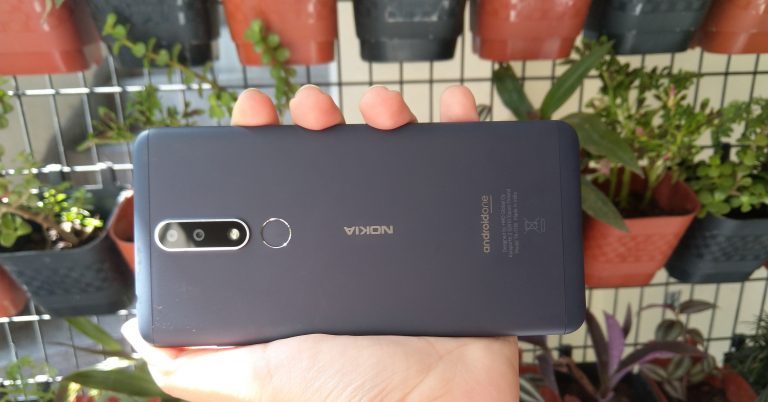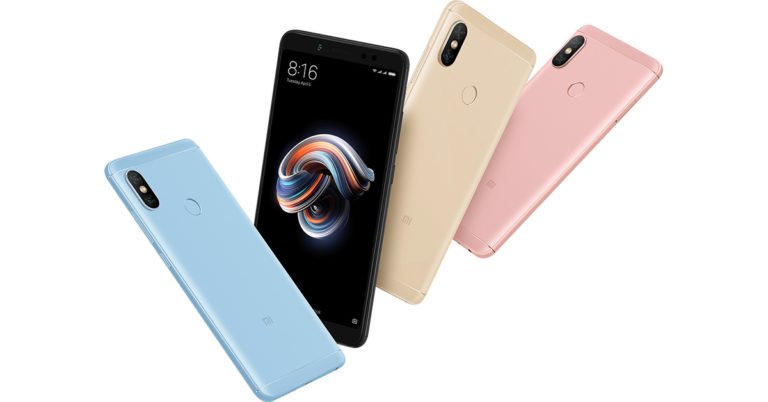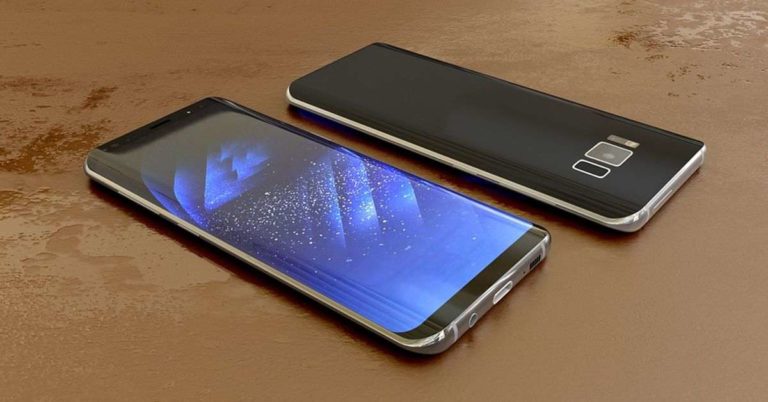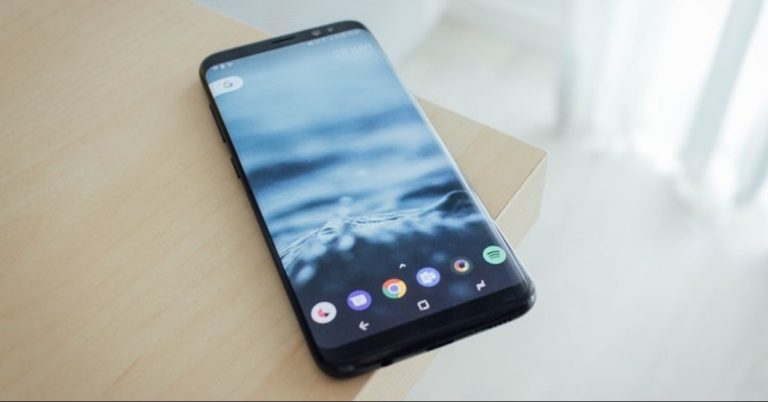Steelbird SBA-1 HF motorbike helmet with mobile audio launched in India
In case you are driving a bike and get an emergency call in the midst of it, it is impossible to pick it up, isn’t it? Well, this problem would now be solved with the Steelbird SBA-1 HF helmet. The SBA-1 HF is battery less, and provides high-quality sound on top of powerful performance. The helmet connects to your phone with the help of an AUX cable so that you can drive, talk or listen to music at the same time. The SBA-1 Hands Free has a single directional microphone that helps in noise cancellation.
There are speakers in the helmet, on the other hand don’t have a noise cancellation feature that helps the rider to hear outside sound, and thus be aware of the road around him. Due to easy access to the single directional microphone, riders can use Google Assistant very conveniently. There is a dedicated button to help you call and disconnect which easily accessible on the helmet. This helps you from not getting distracted while riding the motorcycle.
The helmet incorporated waterproof mechanisms with IP5 water-resistant hands-free parts. With the single direction MIC, none other than the voice of the rider is transmitted to the other side. The company claims that the Steelbird SBI-1 HF helmet manages the sound in such a way that the rider can coordinate well with the sounds outside. Thus, without hampering the ride, the helmet is able to execute its voice technology properly.
There is an Innovative ventilation system equipped with an air intake in the chin guard, frontal and top area. It also includes two rear extractors for recycling air inside the helmet. A Polycarbonte Anti Scratch Coated Visor Quick Release Visor mechanism kit has been incorporated for the comfort of the rider. The Steelbird SBA-HF Helmet comes in three colour options—red, black and white. Size variants range from 58cm to 60cm and is priced at Rs 2,589. It can be picked up from their website or offline dealers.
For the latest gadget and tech news, and gadget reviews, follow us on Twitter, Facebook and Instagram. For newest tech & gadget videos subscribe to our YouTube Channel.
Realme 3 smartphone to sport a 48MP primary camera: Report
Last week, Chinese smartphone brand Xiaomi launched its Redmi Note 7 smartphone that sports a 48MP rear camera. And now, a report has surfaced online which suggests that Oppo‘s sub-brand Realme will be following the suit and it has plans to incorporate a 48MP camera in its upcoming Realme 3 smartphone.
Xiaomi‘s smartphone was not only appreciated for its camera specification, but also for its affordable price. Although the device is not expected to be launched in India before February, it has definitely got the rival companies to work on their offerings considering that Xiaomi has been dominating the budget segment of the Indian smartphone market for quite some time now.
So it’s not entirely surprising that Realme has plans to launch the Realme 3 smartphone with a 48MP primary camera. And this information was revealed by none other than the company’s CEO Madhav Sheth.
Speaking to The Indian Express, Realme CEO Madhav Sheth said that the company’s Realme 3 smartphone could launch as early as Q1 2019 and he hinted that like Realme U1, the upcoming device could also be aimed at those who are obsessed with clicking selfies. This information is directly in-sync with the company’s plans to incorporate a 48MP primary camera, because the Chinese smartphone brand may be looking to launch a photography-centric smartphone.
Sheth also told The Indian Express that Realme also has plans to launch exclusive offline experience stores in the second half of 2019.
We are looking forward to the release of the smartphone and it will surely be interesting to see which among Xiaomi’s Redmi Note 7 and Oppo’s Realme 3 mobile manages to woo the targeted customers.
Realme’s current lineup in India includes Realme U1, Realme 2, Realme 2 Pro, and Realme C1. Interestingly, all of the company’s smartphones are priced between Rs 8,000 and Rs 20,000.
Although Realme is Oppo’s sub-brand, it is trying to create its own identity in the budget segment of the Indian smartphone market and is primarily targeting the youth with its products. Most of the smartphones by the company have been appreciated to offer powerful specifications at an affordable price point.
For the latest gadget and tech news, and gadget reviews, follow us on Twitter, Facebook and Instagram. For newest tech & gadget videos subscribe to our YouTube Channel.
Nokia 9 PureView launch date delayed again
The Nokia 9 PureView was supposed to debut at the end of this month. However, HMD Global has postponed it to the period of Mobile World Congress (MWC) 2019. This is to say, that the Nokia 9 PureView will be launched at the end of February now. To recall, the smartphone has been rumoured to release since last year, but HMD Global delayed the launch due to production line issues. On this pretext, there was a Nokia_Leaks tweet the other day that claimed that the smartphone would now launched during the MWC.
The launch delay reportedly occurred due to problems with its penta-lens camera. Another tipster said that HMD Global would send invitations if it schedules the launch event this month, which now seem unlikely. Nokia 9 PureView is expected to come with five camera sensors at the back and will feature a notch-less, PureDisplay panel. Also, there will be an in-display fingerprint sensor. The Nokia 9 PureView would experience cut-throat competition from Samsung Galaxy S10. The S10’s highlights include thin-bezel displays, newer design language and 5G support.
The penta-lens camera of the Nokia 9 PureView could have five Zeiss-branded camera sensors and dedicated low-light technology to illuminate the images. Just like other Nokia phones, this one will also have Google’s Android One branding. A few days ago, HMD Global leaked renders of the upcoming Nokia 6.2. From what we know, the smartphone is going to come with two RAM variations, that is 4GB and 6GB. It will be powered by a mid-range Snapdragon 632 SoC and will come with a 12MP dual-camera setup at the back.
The Nokia 6.2 is also supposed to debut during MWC. To talk about the specifications more, the Nokia 6.2 will sport a 5.9-inch QHD+ PureView display. Plus, the device will come with a fingerprint scanner. It will house a 4,150mAh battery and will run on Android 9.0 Pie.
Hopefully, this is the last time we will see the Nokia 9 PureView getting delayed. Seems like MWC will be the time all the big smartphones will be making their debut, except Apple.
Image courtesy: LoveNokia
For the latest gadget and tech news, and gadget reviews, follow us on Twitter, Facebook and Instagram. For newest tech & gadget videos subscribe to our YouTube Channel.
Honor 10 Lite with dual rear cameras, Android Pie launched in India: Price and specifications
Huawei’s sub-brand Honor has today unveiled its Honor 10 Lite smartphone in India. It is worth noticing that the device was previously launched in China in November last year and in India, it will be available for purchase via Flipkart and Honor’s online shopping store.
Honor 10 Lite sports a 24MP selfie camera that comes with AI enhancements and is powered by HiSilicon Kirin 710 processor. The device runs android 9.0 Pie out-of-the-box and sports a ‘dewdrop’-shaped notch on its display. Here are the pricing details and specifications of the newly launched device:
In This Article
Honor 10 Lite price in India
Honor 10 Lite mobile is available in 4GB and 6GB RAM options in India. While the former is priced at Rs 13,999, the latter bears a price tag of Rs 17,999. Both the variants can be bought in Midnight Black, Sapphire Blue and Sky Blue colour options. We should mention that among these, the Sky Blue coloured variant comes with a gradient finish on its back panel. The device can be picked up from either Flipkart or HiHonor India store starting 12 am on January 20. As a part of launch offers, Honor 10 Lite buyers will get a Jio cashback of Rs 2,200 and a Cleartrip voucher worth Rs 2,800.Honor 10 Lite specifications
Honor 10 Lite smartphone can hold dual nano-SIM cards and runs Android 9.0 Pie with EMUI 9.0 baked on top. The device features a 6.21-inch full-HD+ display which has a dewdrop-shaped notch on top, a pixel density of 415ppi and a screen-to-body ratio of 91%. Honor 10 Lite comes with a TUV-certified eye care mode which, according to the company, can reduce the blue light effect from the display and hence, decreases the strain on users’ eyes. Honor 10 Lite smartphone is powered by a HiSilicon Kirin 710 processor clubbed with either 4GB or 6GB of RAM and a GPU Turbo 2.0 technology. The mobile phone has 64GB of internal storage and can hold a microSD card of up to 512GB. For imaging duties, there is a 13MP primary camera that has an f/1.8 aperture and a 2MP secondary sensor. On the front panel, there is a 24MP front-facing snapper with an f/2.0 aperture that can be used to click selfies and video calls. The camera app of the newly-launched device has AI scene recognition that is claimed to recognise eight different scenes including sky, beach, plant, flower, snow, room, stage and night. The cameras are also said to have AI-based facial recognition. The smartphone houses a 3,400mAh battery and comes with 4G VoLTE, Wi-Fi, Bluetooth v4.2, 3.5mm audio jack, and GPS for connectivity. For the latest gadget and tech news, and gadget reviews, follow us on Twitter, Facebook and Instagram. For newest tech & gadget videos subscribe to our YouTube Channel.OnePlus is taking over Apple’s spotlight in India
iPhones sale reportedly fell short from 3.2 million in 2017 to 1.7 million in 2018 in India. This drastic fall, if calculated is a 50% difference between the two years. This is reportedly owed to the rise of OnePlus in the competition of the premium smartphone segment. On one hand, Apple lost its credibility over the $400 price band. On the other, OnePlus reached its highest shipments during the end of third quarter of 2018. Another sad thing about Apple is that the latest models, iPhone XS Max, iPhone XR are priced very high even for loyal Apple customers in India.
The blame of iPhone XS Max and iPhone XR price hike cannot be completely given to Apple. It is also because of the weak rupee that has relatively hiked the prices of goods. Tarun Pathak, associate director of Counterpoint said, “The $1,000-plus price tag for new (iPhone) models—even after the offers—was too much for the buyers. So, the older generation iPhones which used to drive volume were hit by Android flagships and new ones were costly.”
Tim Cook, the CEO of Apple observed on Jan 2 that the market of his company was bleak—especially in China. And therefore—in order to compensate for its weak Chinese market—it is aiming to set a strong foothold in India. Rushabh Doshi, research manager at Singapore-based market research firm a Canalys, in a report on QZ said, “At the beginning of 2019, Apple began reining in distribution to ensure strict price control across all channels. Online retailers were no longer able to subsidise costs of the device heavily to ensure growth in GMV (gross merchandise value), thereby hurting sell-through and demand of the expensive iPhones.”
In order to counter the price hike, Apple intends to make its phones more affordable, the ones which will be manufactured in India. The cost savings would eventually be passed on to customers or used for channel expansion and marketing. 2018 was the year of a less costly iPhone, the iPhone XR, the other two models did not fare well in India in many Asian markets because of it high price. Hopefully with these smartphones being manufactured in India by Foxconn and Apple, the price can come down considerably for them to again become buyable. Otherwise OnePlus has a very strong chance to gain more ground over Apple during 2019.
For the latest gadget and tech news, and gadget reviews, follow us on Twitter, Facebook and Instagram. For newest tech & gadget videos subscribe to our YouTube Channel.
Samsung to launch three Galaxy A-series smartphones with in-display fingerprint sensors in 2019: Report
South Korean technology giant Samsung has started catching up with various trends of the smartphone industry and at the same time, it has started setting trends too. For instance, it launched Samsung Galaxy A9 (2018) last year, which is the world’s first smartphone to come with a quadruple rear camera setup. This was followed by the launch of Samsung Galaxy A8s, which is the first ever smartphone to sport a punch-hole display to house the selfie camera.
However, until now, the company does not have a smartphone that comes with an in-display fingerprint scanner and all prior reports said that the feature will be seen on Samsung Galaxy S10 mobile. And now, a new report has emerged that says the on-screen fingerprint sensor will be seen on Galaxy A-series devices too.
According to a report in Korea-based ET News, the technology giant will be launching three Galaxy A-series smartphones this year that will sport an in-display fingerprint scanner. The three smartphones are said to be the Samsung Galaxy A90, Galaxy A70, and Galaxy A50. From just their names, Samsung Galaxy A90 seems to be the most powerful of the three.
The source quoted by ET News says that Samsung has already got suppliers onboard for the sensor and modules and it plans to launch the smartphones in Q2 2019. It has also been reported that Aegis Technology will be manufacturing the sensor module of the new devices by Samsung and that the in-display fingerprint scanners will be optical in nature and not ultrasonic. We should mention that the on-screen fingerprint sensors being used in Samsung Galaxy S10 models are reportedly ultrasonic.
The report further goes on to tell that the mass production will be handled by Partron and Mcnex.
Samsung has not only planned the launches of Galaxy A90, Galaxy A70, and Galaxy A50 smartphones in 2019. It has been reported that the company plans to launch six other smartphones during the year. Among all the smartphones that will be launched, Galaxy A-series devices will sport multiple rear cameras and some of them will feature Time of Flight (ToF) 3D sensors.
The South Korean technology giant has plans to grow its market share in the mid-range category of smartphones. So, the company’s strategy involves offering flagship features at an affordable price.
For the latest gadget and tech news, and gadget reviews, follow us on Twitter, Facebook and Instagram. For newest tech & gadget videos subscribe to our YouTube Channel.
Apple’s COO claims that Qualcomm refused to provide chips for 2018 iPhones
The Chief Operating Officer (COO) of Apple said that last year, Qualcomm refused to provide chips to the Tech giant because Qualcomm was sued by it back in 2017, according to news sources. Jeff Williams, the COO said that the chipmaker forced Apple to use Intel modems exclusively in iPhone XS Max, iPhone XS, and iPhone XR. This shows that the decision was not made by Cupertino, the California-based iPhone maker. In spite of trying to negotiate with Qualcomm multiple times, Williams said, he failed.
And consequently, he was forced to use modems built by Intel. iPhone makers have been using Qualcomm chipsets for quite some time now. As such, the rift between the two parties must have costed Apple with a lot of adjustment issues. On the other hand, quoting Qualcomm from 2017, we get a contrary picture. In 2017, the chipmaker said in a statement to Bloomberg news, “We are committed to supporting Apple’s new devices consistent with our support of all others in the industry.”
It claims that it had already “tested and released to Apple” the modems for being incorporated in the iPhones. On Monday, Apple said that Qualcomm had contacts with other chip providers in order to manufacture chips. This has its own pros and cons for Apple. Firstly, it has helped the company to cut down costs. Secondly, due to possibility of an issue/disagreement with any one chip provider it should be prudent and wise enough to provide a contingency plan.
Though Jeff Williams said that Qualcomm had stopped providing it chipsets during 2018, he admitted that the chipmaker continued to assist it for its older phones. The government has reportedly blamed Qualcomm to misuse its position and forcing customers to use its products and squeeze them for high patent licensing fees.
Recently, it has been known that Apple’s AirPower wireless charging mat might be in production. Based on the ChargerLAB tweet, it has been tipped that Apple has already started manufacturing the AirPower wireless charging mat.
For the latest gadget and tech news, and gadget reviews, follow us on Twitter, Facebook and Instagram. For newest tech & gadget videos subscribe to our YouTube Channel.
Samsung’s 5G smartphone to be named Galaxy S10 X: Report
Samsung Galaxy S10 and Galaxy S10+ smartphones have been making headlines for months now. And the latest report talks about the 5G variant of the smartphone. According to Korea-based publication ETNews, Samsung‘s first 5G-enabled smartphone will be called Galaxy S10 X. It is worth noticing that ‘X’ in the name of the device reportedly stands for 10, since the Galaxy lineup turns ten this year. However, that’s not all that it denotes. It also stands for ‘experience’ and ‘expand’, according to the report.
Samsung Galaxy S10 X will be launched in late March in South Korea and will be unveiled only after other Galaxy S10 variants are launched. The report also says that the ‘fully-loaded’ model will cost between KRW 1.6 million to KRW 1.8 million ($1,425-$1,600).
Contrary to other reports, it has also been said that there will not be a separate Unpacked event at the MWC, which could mean that the 5G variant of the device will be launched on February 20 along with other Galaxy S10 models and the foldable phone. However, we don’t think this piece of information is true considering that Samsung has already announced the Unpacked event for February 20 and there is no other word about the 5G variant being launched on the said date.
It has previously been reported that Samsung Galaxy S10 X will come with a 6.7-inch display that will have an ultrasonic fingerprint scanner embedded on it. The smartphone will reportedly come with a quadruple camera setup on its back panel, much like Samsung Galaxy A9 (2018). Samsung Galaxy S10 X is expected to house a 5,000mAh battery and will reportedly come with more than 10GB of RAM and 1TB of storage. However, it is worth noticing that there is a possibility that 1TB storage means 512GB of internal storage and 512GB of microSD card capacity.
On an unrelated note, the company also hinted yesterday that it may launch its foldable phone Galaxy F along with the three Samsung Galaxy S10 variants on February 20. Samsung has placed two Galaxy Unpacked event banners at Place de la Concorde in Paris. The banners said ‘Unfolding the future’, which can be taken as a direct hint that the company will be seen launching the foldable phone along with other Galaxy S10 models at the event.
For the latest gadget and tech news, and gadget reviews, follow us on Twitter, Facebook and Instagram. For newest tech & gadget videos subscribe to our YouTube Channel.
Kumbh Mela 2019: Airtel TV app gets a dedicated channel to stream the event
Bharti Airtel has today introduced a dedicated channel to live-stream the Kumbh Meal 2019. The Airtel TV app now has a special channel that has been dedicated to the Kumbh proceedings to get users all the live updates from the event to the screen of their smartphones. Airtel, in its press statement, said that it has tied up with VR devotee to bring this exclusive content to those who use their app.
VR Devotee is said to be India’s leading devotional content provider. According to the telecom major, wherever Airtel users may be, they will be able to see the proceedings to Kumbh because of this tie-up. If you are interested in watching the Kumbh Mela 2019, you should know that this VR Devotee powered channel is live on the Airtel TV already and it will keep running till March 4, 2019. In order to watch this content, you must have the Android or iOS version of the Airtel TV app installed on your device.
That’s not all. As a part of the partnership with VR Devotee, Airtel is also putting up special kiosks at the venue in Prayagraj. At these kiosks, visitors can go to get virtual reality based immersive experience. We should mention that VR Devotee has earlier partnered with over 200 major temples and spiritual leaders in India to live stream events like Mysuru Dusshera, Mahamasthakbhisheka, Ganesh Visarjan, etc.
Speaking about the partnership, Sameer Batra, CEO of Content and Apps, Bharti Airtel said, “Kumbh is amongst the biggest and most important events in India and we endeavour to bring it closer to our customers. Airtel TV app will allow users to enjoy the Kumbh experience on their smartphones anytime and from anywhere in fast emerging Digital India. We invite Airtel customers to enjoy this special digital experience on Airtel TV app and also discover a wide range of exclusive and exciting content including 400 LIVE TV channels and over 10,000 movies and shows.”
It is worth mentioning that Airtel TV app has content in 15 languages including Hindi, English, Tamil, Telugu, Kannada, Malayalam, Bengali, Marathi, Oriya, Assamese, Bhojpuri, Punjabi, Gujarati, Urdu and French.
For the latest gadget and tech news, and gadget reviews, follow us on Twitter, Facebook and Instagram. For newest tech & gadget videos subscribe to our YouTube Channel.
Google Pixel 3 Lite XL to come with Snapdragon 710 SoC and 6GB of RAM: Report
Google has been in news for having two more Pixel 3 smartphones under production for quite some time now. And with each new report that surfaces online, the more credible this information seems to be. And now, the benchmark score of a new smartphone in the Pixel series has surfaced online on Geekbench and it reveals some of the key specifications of the device. The listing makes it look like the first ever pure-play mid-range smartphone from Google’s Pixel series.
On Geekbench, a listing under the name of Foxconn Pixel 2 XL comes with Qualcomm Snapdragon 710 processor and is backed by 6GB of RAM. Various media reports suggest that this smartphone could be the mid-range Lite Pixel variant by Google.
 However, we should also mention that this defies the report that suggested that Pixel 3 Lite and Pixel 3 Lite XL smartphones will be powered by Qualcomm’s Snapdragon 670 processor and not have as much as 6GB of RAM. It is also worth noticing that the names of the smartphones have not been confirmed as yet.
Coming back to the listing, with Qualcomm’s Snapdragon 710 SoC, Google’s upcoming smartphone would be more affordable than the current Pixel models, and the plus point is that we’ll get this without compromising too much on the processing power of the device.
Qualcomm’s Snapdragon 710 is primarily used in mid-range handsets like the Nokia 8.1 Plus. However, what is interesting is that in spite of the smartphone being powered by a processor that is not as high-end as the one that powers the current Pixel devices, the upcoming smartphone will come with a bigger RAM. While the current Pixel smartphones have 4GB of RAM, the upcoming handset is shown to have 6GB of RAM.
The Geekbench listing also shows the single-core and multi-core scores of the smartphone, which are 1805 and 5790 respectively. We should also mention that Foxconn, which is best known for manufacturing iPhones, is handling the production of Pixel 3 and Pixel 3 XL smartphones. If this listing is indeed correct, we expect Foxconn to even produce the upcoming Pixel smartphone by Google.
Image courtesy: Geekbench
For the latest gadget and tech news, and gadget reviews, follow us on Twitter, Facebook and Instagram. For newest tech & gadget videos subscribe to our YouTube Channel.
However, we should also mention that this defies the report that suggested that Pixel 3 Lite and Pixel 3 Lite XL smartphones will be powered by Qualcomm’s Snapdragon 670 processor and not have as much as 6GB of RAM. It is also worth noticing that the names of the smartphones have not been confirmed as yet.
Coming back to the listing, with Qualcomm’s Snapdragon 710 SoC, Google’s upcoming smartphone would be more affordable than the current Pixel models, and the plus point is that we’ll get this without compromising too much on the processing power of the device.
Qualcomm’s Snapdragon 710 is primarily used in mid-range handsets like the Nokia 8.1 Plus. However, what is interesting is that in spite of the smartphone being powered by a processor that is not as high-end as the one that powers the current Pixel devices, the upcoming smartphone will come with a bigger RAM. While the current Pixel smartphones have 4GB of RAM, the upcoming handset is shown to have 6GB of RAM.
The Geekbench listing also shows the single-core and multi-core scores of the smartphone, which are 1805 and 5790 respectively. We should also mention that Foxconn, which is best known for manufacturing iPhones, is handling the production of Pixel 3 and Pixel 3 XL smartphones. If this listing is indeed correct, we expect Foxconn to even produce the upcoming Pixel smartphone by Google.
Image courtesy: Geekbench
For the latest gadget and tech news, and gadget reviews, follow us on Twitter, Facebook and Instagram. For newest tech & gadget videos subscribe to our YouTube Channel.
OPPO 2019 phones might have iris scanner and pop-out selfie cameras
OPPO has been innovating from quite some time and an example of its innovative work is the Oppo FindX, which the company launched last year. It was a flagship phone that turned out to be one of the most innovative smartphones OPPO has ever launched. To recall, the device came with a 3D Face Unlock system instead of a fingerprint sensor. Now, it seems that OPPO is going to incorporate an iris scanner security technology and pop-out selfie cameras in its smartphones this year. Which seems be borrowed by its sister company Vivo.
OPPO has filed a patent with World Intellectual Property Organisation(WIPO) on the basis of which this information has come to light. In accordance to the description given by OPPO’s WIPO patent, it suggests that the phones would contain iris scanner, OLED screen panels and infrared light source. The iris-scanning module has the capability to adjust the light density of the transmitted infrared light with respect to the distance of the subjects to capture their iris details.
The image of the subject will then be used to unlock the smartphone. The iris scanner is expected to keep the phone more secure compared to the 3D face unlock that is available in most flagships nowadays. Talking about the pop-up selfie camera, we can expect that the upcoming smartphones to have a higher screen-to-body ratio because of this incclusion. It is likely to resemble the Vivo NEX. According to the WIPO patent, the selfie camera in upcoming OPPO phones will be on top of the smartphones. This resembles the Vivo NEX’s selfie camera.
For the unknown, the Vivo NEX comes with a 6.59-inch touchscreen with 1,080×2316 pixel resolution. The smartphone is powered by a quad core processor with clock speed of up to 2.8GHz. There is only one RAM variant of 8GB which comes with 128GB internal storage. The smartphone houses a 4,000mAh battery and dual rear cameras of 12MP and 8MP. Coming back to OPPO, it cannot be ascertained as of now if it will incorporate pop-out selfie cameras and iris scanners in all or how many of its upcoming phones. However, there is a great chance that its next flagship will have both these technologies incorporated in it.
For the latest gadget and tech news, and gadget reviews, follow us on Twitter, Facebook and Instagram. For newest tech & gadget videos subscribe to our YouTube Channel.
Oppo to introduce 10x optical zoom camera on January 16
To recall, two years back Oppo had announced the 5x zoom smartphone technology at MWC 2017. Now it is time for them to announce 10x zoom smartphone gizmotics and is sending media invites for the event which is going to showcase the same. The event is supposed to take place in Beijing, China on January 16. Oppo hasn’t declared any smartphones which will have this feature as of now. In fact, Oppo hasn’t yet announced any phone with respect to the 5x zoom, too. So, it is safe to assume that the 10x introduction is likely to be a prototype one.
For the unknown, the current 5x lens is actually a 5P lens. It is followed by a 90-degree angular prism that directs light to a vertically positioned camera sensor. Since the zoom is maxed out, the OIS unit will be put on the other end. Recently, the Chinese smartphone maker launched a new smartphone belonging to the R15 series. It is called the Oppo R15 Pro. The Oppo R15 Pro comes with a single RAM variant of 6GB and 128GB internal storage. A microUSB card slot can expand the storage up to 256GB.
The R15 comes in two colour options—cosmic purple and ruby red. Both colour options are available on Amazon’s India website. The mobile has a 6.28-inch full HD+ on-cell OLED display with an aspect ratio of 19:9. The display resolution is 2,280×1,080 pixels. The Oppo R15 Pro is powered by Qualcomm’s Snapdragon 660 processor paired with Adreno 512 GPU.
The smartphone runs on Android 8.1 Oreo and is skinned with Oppo’s own ColourOS 5.0. The device harnesses a 3,430mAh battery that is non-removable and supports Oppo’s VOOC Flash Charge Technology. Connectivity options include Bluetooth v5.0, 4G LTE, NFC, USB, GPS and a 3.5mm headphone jack. Dual camera setup includes a 20MP primary sensor and 16MP secondary sensor. The former is coupled with f/1.7 aperture and the latter with an f/2.0 aperture.
Image courtesy: Mydrivers.com
For the latest gadget and tech news, and gadget reviews, follow us on Twitter, Facebook and Instagram. For newest tech & gadget videos subscribe to our YouTube Channel.
Samsung Galaxy F foldable phone may get unveiled on February 20
South Korean technology giant Samsung has hinted that it may have plans of unveiling its foldable smartphone at the Galaxy Unpacked event that is scheduled for February 20. On Sunday, the smartphone maker issued a press release in South Korea that marked the placement of two Galaxy Unpacked event banners.
It is worth noticing that these banners were written in Hangul and have been placed at Place de la Concorde of Paris. For those unaware, Hangul is the Korean alphabet and Samsung has mentioned that this is the first time that it is being used for outdoor advertising by the company.
The press release shared by Samsung reveals that the banners have ‘Unfolding the future’ written on them. This is a very big hint that the company may be planning to launch the foldable phone at the Galaxy Unpacked event.
But then at the same time, the company hasn’t openly said that it will be launching its foldable phone or Galaxy F at the Galaxy Unpacked event, so some may argue that the foldable phone will be launched along with the 5G variants of Samsung Galaxy S10 and Galaxy S10+. However, we feel that if the company has used the phrase ‘Unfolding the future’ to publicise the event, it means that the upcoming event on February 20 will include the foldable phone too.
We should also mention that this is in-line with the recent report in The Wall Street Journal, which stated that Samsung will b be launching its first foldable phone at the Galaxy Unpacked event. However, The Wall Street Journal did not specify whether the company will just showcase the device or officially unveil it.
This coupled with the latest indication from the company has given us all the hint that we need to conclude that Samsung will be taking wraps off its foldable phone on February 20. While it isn’t clear if the smartphone maker will be launching the foldable phone, what we do know is that Samsung is definitely launching the Galaxy S10 smartphones at the February 20 event. Samsung’s foldable phone first got showcased at the company’s developer’s conference in November 2018 and it also made an appearance at CES 2019 this month.
For the latest gadget and tech news, and gadget reviews, follow us on Twitter, Facebook and Instagram. For newest tech & gadget videos subscribe to our YouTube Channel.
Seven most overrated smartphones launched in the last 12 months
A number of smartphones are launched in India every month. While some manage to make a mark, some fail to do so. Here, we have compiled a list of seven smartphones that we think are the most overrated ones from 2018. Take a look:
 This was one among the high-end smartphones that the Chinese smartphone brand launched last year. It came with powerful specifications and impressive camera slider design, but it still made it to our list considering the fact that it was caught cheating in benchmark results. If it indeed were as good a performer as it claims to be, it wouldn’t have needed any cheating.
This was one among the high-end smartphones that the Chinese smartphone brand launched last year. It came with powerful specifications and impressive camera slider design, but it still made it to our list considering the fact that it was caught cheating in benchmark results. If it indeed were as good a performer as it claims to be, it wouldn’t have needed any cheating.
 Yes, Huawei’s flagship smartphone is on our list too. We have to admit that the specifications of the smartphone are impressive with a 4,200mAh battery onboard and a triple rear camera comprising of a 40MP sensor, a 20MP ultra wide angle sensor and an 8MP 3X telephoto sensor. However, we didn’t find it worthy of the exorbitant price tag of Rs 69,990. We have seen much better smartphones in a lesser price range in 2018 and Samsung Galaxy A9 (2018) is a good example of that.
Yes, Huawei’s flagship smartphone is on our list too. We have to admit that the specifications of the smartphone are impressive with a 4,200mAh battery onboard and a triple rear camera comprising of a 40MP sensor, a 20MP ultra wide angle sensor and an 8MP 3X telephoto sensor. However, we didn’t find it worthy of the exorbitant price tag of Rs 69,990. We have seen much better smartphones in a lesser price range in 2018 and Samsung Galaxy A9 (2018) is a good example of that.
 Xiaomi touted this smartphone to pack powerful specifications at an affordable price. In fact, when OnePlus 6T was launched this year, the company also started a campaign on social media called ‘Do the Maths’. Xiaomi claimed in the campaign that its POCO F1 smartphone offered specifications that were similar to OnePlus 6T but was more pocket-friendly. But sorry Xiaomi, specifications are not everything. The device only comes with IPS display and not an AMOLED one like most devices the company claims it is competing with. Unlike most of its ‘competitors’, it has a broad chin and a thick notch which basically means lesser screen space for the smartphone. We have seen smartphones from the likes Oppo and Vivo in the same range with much better cameras than POCO F1. So that leaves us with the processor, RAM and operating system. It does score points in these departments, but it’s definitely not as great a phone as it is claimed to be.
Xiaomi touted this smartphone to pack powerful specifications at an affordable price. In fact, when OnePlus 6T was launched this year, the company also started a campaign on social media called ‘Do the Maths’. Xiaomi claimed in the campaign that its POCO F1 smartphone offered specifications that were similar to OnePlus 6T but was more pocket-friendly. But sorry Xiaomi, specifications are not everything. The device only comes with IPS display and not an AMOLED one like most devices the company claims it is competing with. Unlike most of its ‘competitors’, it has a broad chin and a thick notch which basically means lesser screen space for the smartphone. We have seen smartphones from the likes Oppo and Vivo in the same range with much better cameras than POCO F1. So that leaves us with the processor, RAM and operating system. It does score points in these departments, but it’s definitely not as great a phone as it is claimed to be.
 We are still very disappointed with Google’s 2018 offerings. In our opinion, both the smartphones weren’t much of an upgrade. Google Pixel 3 XL particularly upset many users because of the gigantic notch on its display. While photography on the device does remain top notch and Google has upgraded the software of the smartphones with some nifty features, it could easily have done better in design and hardware department too.
We are still very disappointed with Google’s 2018 offerings. In our opinion, both the smartphones weren’t much of an upgrade. Google Pixel 3 XL particularly upset many users because of the gigantic notch on its display. While photography on the device does remain top notch and Google has upgraded the software of the smartphones with some nifty features, it could easily have done better in design and hardware department too.
 We still haven’t understood why Xiaomi decided to launch the same smartphone under a different name. Most of the specifications of the device are exactly the same as its predecessor Xiaomi Redmi Note 5 Pro. The company only added a fancier packaging to the same internals and launched it as Xiaomi Redmi Note 6 Pro. Don’t believe us? Read about all the similarities here.
We still haven’t understood why Xiaomi decided to launch the same smartphone under a different name. Most of the specifications of the device are exactly the same as its predecessor Xiaomi Redmi Note 5 Pro. The company only added a fancier packaging to the same internals and launched it as Xiaomi Redmi Note 6 Pro. Don’t believe us? Read about all the similarities here.
 Lenovo made a comeback in the Indian smartphone market with its K9 and A5 smartphones in 2018. However, neither of the two smartphones managed to make a mark. While Lenovo A5 can still pass as an entry-level smartphone, the K9 does not manage to impress as compared to rivals like Asus Zenfone Max Pro M1. For those unaware, Lenovo K9 is priced at Rs 8,999, while Asus Zenfone Max Pro M1’s base model is priced at Rs 10,999. However, the latter packs much better specifications and is a far better performer than Lenovo K9. Asus’ offering is only an example. We have seen other better smartphones in the same range as compared to Lenovo K9.
Lenovo made a comeback in the Indian smartphone market with its K9 and A5 smartphones in 2018. However, neither of the two smartphones managed to make a mark. While Lenovo A5 can still pass as an entry-level smartphone, the K9 does not manage to impress as compared to rivals like Asus Zenfone Max Pro M1. For those unaware, Lenovo K9 is priced at Rs 8,999, while Asus Zenfone Max Pro M1’s base model is priced at Rs 10,999. However, the latter packs much better specifications and is a far better performer than Lenovo K9. Asus’ offering is only an example. We have seen other better smartphones in the same range as compared to Lenovo K9.
 There are plenty of reasons why Xiaomi’s selfie smartphone – Redmi Y2 makes it to our list. It has a plastic body and comes without a Full HD display. Most of its competitors offer a bigger battery capacity, and a more premium look and feel at the same price point. You can read in detail about why this smartphone is overrated here.
For the latest gadget and tech news, and gadget reviews, follow us on Twitter, Facebook and Instagram. For newest tech & gadget videos subscribe to our YouTube Channel.
[td_smart_list_end]
There are plenty of reasons why Xiaomi’s selfie smartphone – Redmi Y2 makes it to our list. It has a plastic body and comes without a Full HD display. Most of its competitors offer a bigger battery capacity, and a more premium look and feel at the same price point. You can read in detail about why this smartphone is overrated here.
For the latest gadget and tech news, and gadget reviews, follow us on Twitter, Facebook and Instagram. For newest tech & gadget videos subscribe to our YouTube Channel.
[td_smart_list_end]
In This Article
Oppo Find X
 This was one among the high-end smartphones that the Chinese smartphone brand launched last year. It came with powerful specifications and impressive camera slider design, but it still made it to our list considering the fact that it was caught cheating in benchmark results. If it indeed were as good a performer as it claims to be, it wouldn’t have needed any cheating.
This was one among the high-end smartphones that the Chinese smartphone brand launched last year. It came with powerful specifications and impressive camera slider design, but it still made it to our list considering the fact that it was caught cheating in benchmark results. If it indeed were as good a performer as it claims to be, it wouldn’t have needed any cheating.
Huawei Mate 20 Pro
 Yes, Huawei’s flagship smartphone is on our list too. We have to admit that the specifications of the smartphone are impressive with a 4,200mAh battery onboard and a triple rear camera comprising of a 40MP sensor, a 20MP ultra wide angle sensor and an 8MP 3X telephoto sensor. However, we didn’t find it worthy of the exorbitant price tag of Rs 69,990. We have seen much better smartphones in a lesser price range in 2018 and Samsung Galaxy A9 (2018) is a good example of that.
Yes, Huawei’s flagship smartphone is on our list too. We have to admit that the specifications of the smartphone are impressive with a 4,200mAh battery onboard and a triple rear camera comprising of a 40MP sensor, a 20MP ultra wide angle sensor and an 8MP 3X telephoto sensor. However, we didn’t find it worthy of the exorbitant price tag of Rs 69,990. We have seen much better smartphones in a lesser price range in 2018 and Samsung Galaxy A9 (2018) is a good example of that.
Xiaomi POCO F1
 Xiaomi touted this smartphone to pack powerful specifications at an affordable price. In fact, when OnePlus 6T was launched this year, the company also started a campaign on social media called ‘Do the Maths’. Xiaomi claimed in the campaign that its POCO F1 smartphone offered specifications that were similar to OnePlus 6T but was more pocket-friendly. But sorry Xiaomi, specifications are not everything. The device only comes with IPS display and not an AMOLED one like most devices the company claims it is competing with. Unlike most of its ‘competitors’, it has a broad chin and a thick notch which basically means lesser screen space for the smartphone. We have seen smartphones from the likes Oppo and Vivo in the same range with much better cameras than POCO F1. So that leaves us with the processor, RAM and operating system. It does score points in these departments, but it’s definitely not as great a phone as it is claimed to be.
Xiaomi touted this smartphone to pack powerful specifications at an affordable price. In fact, when OnePlus 6T was launched this year, the company also started a campaign on social media called ‘Do the Maths’. Xiaomi claimed in the campaign that its POCO F1 smartphone offered specifications that were similar to OnePlus 6T but was more pocket-friendly. But sorry Xiaomi, specifications are not everything. The device only comes with IPS display and not an AMOLED one like most devices the company claims it is competing with. Unlike most of its ‘competitors’, it has a broad chin and a thick notch which basically means lesser screen space for the smartphone. We have seen smartphones from the likes Oppo and Vivo in the same range with much better cameras than POCO F1. So that leaves us with the processor, RAM and operating system. It does score points in these departments, but it’s definitely not as great a phone as it is claimed to be.
Google Pixel 3 XL
Xiaomi Redmi Note 6 Pro
 We still haven’t understood why Xiaomi decided to launch the same smartphone under a different name. Most of the specifications of the device are exactly the same as its predecessor Xiaomi Redmi Note 5 Pro. The company only added a fancier packaging to the same internals and launched it as Xiaomi Redmi Note 6 Pro. Don’t believe us? Read about all the similarities here.
We still haven’t understood why Xiaomi decided to launch the same smartphone under a different name. Most of the specifications of the device are exactly the same as its predecessor Xiaomi Redmi Note 5 Pro. The company only added a fancier packaging to the same internals and launched it as Xiaomi Redmi Note 6 Pro. Don’t believe us? Read about all the similarities here.
Lenovo K9
 Lenovo made a comeback in the Indian smartphone market with its K9 and A5 smartphones in 2018. However, neither of the two smartphones managed to make a mark. While Lenovo A5 can still pass as an entry-level smartphone, the K9 does not manage to impress as compared to rivals like Asus Zenfone Max Pro M1. For those unaware, Lenovo K9 is priced at Rs 8,999, while Asus Zenfone Max Pro M1’s base model is priced at Rs 10,999. However, the latter packs much better specifications and is a far better performer than Lenovo K9. Asus’ offering is only an example. We have seen other better smartphones in the same range as compared to Lenovo K9.
Lenovo made a comeback in the Indian smartphone market with its K9 and A5 smartphones in 2018. However, neither of the two smartphones managed to make a mark. While Lenovo A5 can still pass as an entry-level smartphone, the K9 does not manage to impress as compared to rivals like Asus Zenfone Max Pro M1. For those unaware, Lenovo K9 is priced at Rs 8,999, while Asus Zenfone Max Pro M1’s base model is priced at Rs 10,999. However, the latter packs much better specifications and is a far better performer than Lenovo K9. Asus’ offering is only an example. We have seen other better smartphones in the same range as compared to Lenovo K9.
Xiaomi Redmi Y2
 There are plenty of reasons why Xiaomi’s selfie smartphone – Redmi Y2 makes it to our list. It has a plastic body and comes without a Full HD display. Most of its competitors offer a bigger battery capacity, and a more premium look and feel at the same price point. You can read in detail about why this smartphone is overrated here.
For the latest gadget and tech news, and gadget reviews, follow us on Twitter, Facebook and Instagram. For newest tech & gadget videos subscribe to our YouTube Channel.
[td_smart_list_end]
There are plenty of reasons why Xiaomi’s selfie smartphone – Redmi Y2 makes it to our list. It has a plastic body and comes without a Full HD display. Most of its competitors offer a bigger battery capacity, and a more premium look and feel at the same price point. You can read in detail about why this smartphone is overrated here.
For the latest gadget and tech news, and gadget reviews, follow us on Twitter, Facebook and Instagram. For newest tech & gadget videos subscribe to our YouTube Channel.
[td_smart_list_end] How to restore your iPhone to factory settings?
Before we go ahead, you should know that it is important that you possess the latest iTunes version, if you want to restore your iPhone to factory settings using a MAC or a PC. This pertains to the case when you want to restore your iPhone with the help of your Mac/PC. Know that once you restore your iPhone, all your data will be removed. So, it is important that you backup your iPhone data in a hard disk or your computers or laptops storage in case you don’t want to get rid of them. Firstly, let us teach you how to restore your iPhone with the help of a computer. Note that you need to connect your device with a PC/Mac before anything. Here you go:
- In your iPhone, go to Settings> [your name] >iCloud>My iPhone and switch it off.
- Open iTunes on your Mac/PC.
- There will be a pop-up message asking you for your device passcode or to Trust This Computer. Write the passcode once you receive it.
- Select your iPhone once it appears on iTunes.
- A summary panel would appear. Here, you will find the Restore iPhone button. Press it.
- Click Restore again to confirm.
- Tap settings> general settings> reset
- Enter the Screen Time Passcode once you get it from via a text message. At this stage your device will start erasing all your files until it updates it to the latest iPhone version
Android Pie update for Nokia 8 will get late, so unlike Nokia
Android 9.0 Pie was announced for Nokia 8 on December 19 last year. However, due to issues regarding VOLTE, the phone ended up not getting the update. Nokia 8 is the first top model phone to be in the budget segment launched by HMD global. Considering it is one of the best smartphone HMD global has launched, Nokia 8 users were wistfully waiting for the latest update to hit their phone first. However, since it didn’t and they have to see lower brand phones receiving the update before them.
The CPO of HMD Global, Juho Sarvikas explained in a tweet that it was due to VoLTE issues that the Nokia 8 isn’t being updated. To recall, the Nokia 8 features an IPS LCD capacitive 5.3-inches touchscreen with a 1,440×2,560 pixels resolution. The screen ratio for the same is 16:9. The phone was launched with Android 7.1.1 Nougat but sadly, as we have stated it is not going to receive Android Pie anytime soon. The device is powered by Qualcomm’s Snapdragon 835 processor.
There are two RAM variants—4GB and 6GB that come with 64GB and 128GB internal storages respectively. The main camera comprises of two 13MP sensors and the front camera meant for selfie is again a 13MP shooter. Connectivity options include WiFi 802.11, Bluetooth 5.0, GPS, NFC and USB 3.1. The Nokia 8 is powered by a 3,090mAh non-removable battery and includes a fingerprint sensor. Other sensors include accelerometer, gyro, proximity, compass and barometer.
It comes in multiple colour options that include tempered blue, polished blue steel, polished copper. The Nokia 8 has a screen contrast ratio of 1,840:1.
For the latest gadget and tech news, and gadget reviews, follow us on Twitter, Facebook and Instagram. For newest tech & gadget videos subscribe to our YouTube Channel.
[Video] CES 2019: Top announcements from the world’s biggest tech show
Last week, the biggest technology show of the year – CES 2019 – was held in Las Vegas. Like every year, a number of new products were launched at the show and various new innovations were showcased. In our video, we have listed down the biggest highlights of the Consumer Electronics Show 2019. Watch it now to see what all happened.
For the latest gadget and tech news, and gadget reviews, follow us on Twitter, Facebook and Instagram. For newest tech & gadget videos subscribe to our YouTube Channel.
This much-awaited Apple product may finally be launched this year
When Apple launched the iPhone X in 2017, it also unveiled its wireless charging mat, which still happens to be a much-awaited product in 2019. However, if rumours are to be believed, Apple’s AirPower wireless charging mat may finally be in production.
According to a tweet by ChargerLAB (via MacRumors), ‘credible sources’ have said that Apple has finally started manufacturing the AirPower wireless charging mat that has been delayed for so long. If this is indeed true, a much-awaited and talked-about Apple product may soon be on its way to the customers.
To recall, Apple had given the world a first look at the AirPower wireless charging mat in September 2017 when it launched the iPhone 8 and iPhone X. It showcased how the charging mat had the capability of not only charging the iPhone, but also the Apple Watch and AirPods. The company was expected to announce the pricing of its product in 2018. Initial reports also said that the product would be shipped in March 2018. But then, that obviously didn’t happen and we still don’t know about the details involving its pricing or availability. Apple has held various conferences during this time to announce its various products, but it hasn’t mentioned the AirPower wireless charging mat again. In June 2018, we learned that the company was facing some technical troubles with the much-awaited charging mat, primarily because it was overheating due to charging three different devices at the same time. And Apple obviously didn’t want to ship the product with an issue like that. Recently, some analysts said that the technology giant will launch the device for customers in either late 2018 or early 2019. We should also mention that Apple will reportedly also release the upgraded version of its AirPods this year, which will come with support for wireless charging. So it can be a possibility that the two will be launched together and Apple was in fact, holding off on the update to AirPods till the time it released its AirPower charging mat. The report in MacRumours also suggested that Apple is no longer facing any technical issues that it faced with the device earlier. Although there is no confirmation from Apple on this, if what ChargerLAB says is true, we may finally get to use the AirPower charging mat soon. For the latest gadget and tech news, and gadget reviews, follow us on Twitter, Facebook and Instagram. For newest tech & gadget videos subscribe to our YouTube Channel.Breaking: AirPower is finally coming. We just learned from credible source in supply chain that the manufacture Luxshare Precision has already started producing Apple AirPower wireless charging pad. Luxshare Precision is also the maker of Apple AirPods and USB-C cables. pic.twitter.com/UqgWIAh3sx
— ChargerLAB (@chargerlab) January 12, 2019
Nokia 3.1 Plus price slashed in India, now cheaper by Rs 1,500
Instead of its launch price that was Rs 11,499 the Nokia 3.1 Plus will now cost Rs 9,999. After this Rs 1,500 price slash the phone now costs the same as the Nokia 5.1 Plus that was announced in July, 2018. Also, the Nokia 3.1 Plus is available in offline retail stores from October, 2018. The smartphone gained a lot of attention because it compensated a lot against what its sibling, the Nokia 3.1 lacked. For example, the Nokia 3.1 Plus came with a fingerprint scanner that its predecessor was missing.
Also, the Nokia 3.1 Plus has a larger screen than the Nokia 3.1. In terms of battery also, the Nokia 3.1 Plus aces its sibling as it houses a 3,500mAh battery, where the other has a 2,990mAh battery. The smartphone comes with a 5V-2A charger and runs on Android 8.0 Oreo. It also comes under the Android One programme. To recall, the dimensions of the Nokia 3.1 Plus are 156.9×76.4×8.2mm and it weighs 180grams. The screen resolution is 720×1,440 pixels and the aspect ratio is 18:9. The device sports an IPS LCD capacitive 6-inch touchscreen.
Two RAM variants include 2GB and 3GB that come with 16GB and 32GB internal storage respectively. The storage is expandable via a microSD card up to 400GB. The Nokia 3.1 Plus sports a dual rear camera of 13MP and 5MP and features an 8MP front camera with an LED flash. Connectivity options of the phone includes WiFi 802.11, hotspot, Bluetooth 4.1, GPS, NFC, FM Radio and a microUSB 2.0.
As mentioned, the smartphone houses a quite big battery of 3,500mAh and includes blue, white and gray as colour options. Sensors besides the fingerprint scanner includes accelerometer, gyro, proximity and compass. Though the Nokia 3.1 Plus is at par with the Nokia 5.1 Plus, the latter one is superior in terms of storage. The storage variants are 32GB and 64GB that are part of 3GB and 4GB RAM variants respectively. The Nokia 5.1 Plus includes a dual rear camera setup that consists of a 13MP and 5MP sensor and an 8MP single front camera meant for selfies.
For the latest gadget and tech news, and gadget reviews, follow us on Twitter, Facebook and Instagram. For newest tech & gadget videos subscribe to our YouTube Channel.
Xiaomi Redmi Note 5, Redmi Note 6, Mi 6X and Redmi S2 will get Android Pie OS update soon
Xiaomi has decided that it will bring Android Pie OS to the Redmi Note 5, Redmi Note 6, Mi 6X and the Redmi S2. Unlike other OEMS which follow a conventional cycle, Xiaomi’s update cycle is very different. Xiaomi also depends on MIUI updates for getting new features and stability improvements in addition to base Android versions. This implies that, in case of MIUI versions, features across devices are more reliant on it than on the device’s with plain Android OS.
Compared to Xiaomi, other some OEMs take less time for the arrival for the base Android update. But that is naturally true, because MIUI update is quite heavy. Based on its portfolio, we know that Xiaomi will bring Android 9.0 Pie to more of its smartphones soon. To recall, Android Pie was announced for Xiaomi smartphones such as the Mi Mix 3, Mi 8 which were eventually updated to the OS version. Xiaomi hasn’t provided a concrete timeline as to when the updates will be launched for its other models like Note 5 Pro.
As of now, we know that Xiaomi has announced the update of the Redmi Note 5, Redmi Note 6, Mi 6X and Redmi S2. There is going to be a beta test of the update so it will be initially available for a limited number of users before it is launched for the masses. If you want to be a part of the beta test programme, then you need to sign up by accessing the Beta Sign-Up page. It is going to take a while before the stable update is available for everyone on these devices. However, industry insiders do suggest that it can be seen in Q1 of 2019 on these smartphones.
Four days ago, Xiaomi launched its budget segment smartphone, the Xiaomi Redmi Note 7. The smartphone sports an IPS LCD capacitive 6.3-inches touchscreen with 1,080×2,340 pixels. The screen ratio for the same is 19.5:9. The Xiaomi Redmi Note 7 runs on Android 9.0 Pie and is powered by Qualcomm’s Snapdragon 660 SoC. Its RAM variants include 4GB and 6GB which come with 64GB internal storage and a 3GB variant which comes with a 32GB storage.
For the latest gadget and tech news, and gadget reviews, follow us on Twitter, Facebook and Instagram. For newest tech & gadget videos subscribe to our YouTube Channel.
Samsung Galaxy M series smartphones to launch on January 28 in India
A few years back, Samsung was ruling the Indian smartphone market’s budget segment. But then, it lost its crown to Chinese smartphone brand Xiaomi. Now, it seems like the South Korean technology giant is working on taking the top spot back with its upcoming Galaxy M series. The line-up is set to replace smartphones from Samsung’s existing Galaxy On series and Galaxy J series.
Last week, the company confirmed the launch of its Samsung Galaxy M10 and now, it has confirmed that it will be launching its first Galaxy M smartphones in the country on January 28. It is worth noticing that this will be the global launch of the company’s Galaxy M series devices.
It has also been announced that the smartphones will be sold exclusively via Amazon India’s website along with Samsung’s online store. According to Samsung, the devices will deliver a power-packed performance. Having said that, it didn’t disclose any specifications of the upcoming smartphones. Samsung just said that the smartphones in Galaxy M series will come with a powerful display, powerful camera, powerful battery and a powerful processor.
Various reports about the upcoming smartphones have surfaced online and it has been claimed that Samsung will be launching three devices – Galaxy M10, Galaxy M20 and Galaxy M30.
In an interview with Reuters, Samsung India’s Senior Vice President said that the upcoming smartphones will house large batteries and come equipped with fast charging. This is in-sync with an earlier report that Samsung Galaxy M20 will feature a 5,000mAh battery, which is the highest battery capacity ever seen on a Samsung smartphone.
Previous leaks have also thrown some light on the Galaxy M10 smartphone. According to reports, the device will come with a 5.6-inch LCD display and will be powered by an Exynos 7870 processor coupled with 3GB of RAM and 32GB of onboard storage. It has also been reported that the smartphone will house a 3,000mAh battery.
Speaking of Samsung Galaxy M20, it will feature a 6.1-inch LCD display and will run the Exynos 7885 processor. Much like Samsung Galaxy M10, the device will have 3GB of RAM, but will come with a bigger 64GB of internal storage. As we mentioned earlier, it will reportedly house a 5,000mAh battery.
Coming to Samsung Galaxy M30, it will come with an Infinity U display and will house a 5,000mAh battery too. Samsung Galaxy M30 will come with a triple rear camera setup comprising of a 13MP and two 5MP sensors. For selfies and video calls, there will be a 16MP sensor on the devices.
For the latest gadget and tech news, and gadget reviews, follow us on Twitter, Facebook and Instagram. For newest tech & gadget videos subscribe to our YouTube Channel.
Apple leak accidentally reveals cool new iPhone, it looks too awesome for words
There has been a new leak by Apple about its new iPhone which reveals some vital information about its shell. Earlier it was known that the iPhone has a controversial design because of which it had been criticized. But that was just about its outward look, which in the leaked pictures looks quite nice. This time Apple, on the basis of its renders has accidentally leaked some of its inner features, too. The tech giant has reportedly made some important changes to the upcoming iPhone 11 which is worth your attention.
The iPhone 11 will reportedly have triple rear cameras and a 3D sensor. However, the sad news is that Apple is going to stagnate its flagship camera tech in this model. It is sad, considering that Apple had introduced its camera parity for the first-time last year. Apple will reportedly integrate new antenna technology across all its new iPhones. No information has been given as to how this will happen. We only know that there will be a switch from liquid crystal polymer antennas to a modified PI approach.
There might be repercussions when one needs more reliable signal and/or faster data. But only time will show whether or not it compensates for a lack of 5G antenna. Another vital piece of information is that Apple might introduce next-generation WiFi 6/802.11 ax on the iPhone 11. It is worth investing in a router compatible with WiFi 6 tech because it is faster and consumes less battery over a period of time. Currently, there are very few routers with this tech, but should be available in abundance, by the time Apple iPhone 11 is launched.
Apple will reportedly enhance Face ID on the iPhone 11 too by increasing the power of the flood illuminator. This is a Face ID component that emits infrared(IR) light in order to illuminate your face in front of a dot projector. This dot projector fires 30,000 dots of invisible IR which helps it to map your face in three dimensions. If you improve the illumination, the dot projector is enhanced in terms of speed and accuracy. Though the image is a leaked render representation of the what the actual iPhone might look like, it just look too fabulous for words!
Image courtesy: blogs.forbes.com
For the latest gadget and tech news, and gadget reviews, follow us on Twitter, Facebook, Instagram and YouTube.
OnePlus 7 to sport a camera slider like Oppo Find X: Report
OnePlus 7 is definitely among the most awaited smartphones of the year. And reports about the upcoming device have already started surfacing online. A report has emerged that claims that OnePlus 7 will come with a camera slider and will have no bezels, much like Oppo Find X, Xiaomi Mi Mix 3 and Honor Magic 2. The first leaked image of OnePlus 7 surfaced on SlashLeaks and it shows a completely revamped design of the smartphone as compared to its predecessor, OnePlus 6T.
We should mention that although OnePlus devices don’t lack originality, there have been times when they have taken some inspiration from its sister brands, Oppo and Vivo. For those unaware, Oppo, Vivo and OnePlus have the same parent company, BBK Electronics. An example of the inspiration is the in-display fingerprint scanner that we saw in OnePlus 6T. Like Vivo NEX and Oppo Find X, OnePlus 6T also used an optical fingerprint sensor and not an ultrasonic one.
Coming back to OnePlus 7, the reason why the leak seems credible is that the company seems to be moving towards an all-screen experience with every smartphone. To recall, OnePlus 5T came with thin bezels, OnePlus 6 incorporated the iPhone X-like notch and the latest device by the company, OnePlus 6T came with a waterdop-shaped notch providing users with even more screen space. So it is very likely that the smartphone maker would try to provide users with even more screen space in the upcoming OnePlus 7 by removing the notch altogether. Oppo and Vivo have already gone notchless with Find X and NEX smartphones. While Oppo opted for a camera slider, Vivo opted for a pop-up selfie camera. And the OnePlus 7 image that has surfaced online shows that it will be somewhat like Oppo’s design.
Speaking further about the image, it shows OnePlus 7 kept next to OnePlus 6T, probably to draw a comparison between two mobile phones. As per the picture that has been shared, OnePlus 7 neither has a forehead, nor a chin. The image does not show a selfie camera of the device and it does not even come with a punch-hole display to house the front-facing snapper. However, the speaker grille is placed on the top of the smartphone. So all of this does point towards the possibility of OnePlus 7 being a slider phone. Another significant change is the coloured alert slider, which is very different from the one we saw on OnePlus 6T. It is more like the coloured power button that we saw on Huawei Mate 20 Pro.
Although as of now there is no word on the specifications of the mobile phone, it is expected to be powered by Qualcomm Snapdragon 855 processor, and is likely to come with up to 8GB of RAM. It is also being said that the device will come with the company’s warp charging technology that we first saw on OnePlus 6T McLaren edition.
Image courtesy: SlashLeaks
For the latest gadget and tech news, and gadget reviews, follow us on Twitter, Facebook and Instagram. For newest tech & gadget videos subscribe to our YouTube Channel.
Samsung Galaxy S10+ to house a 4,000mAh battery: Report
Taiwanese smartphone maker Samsung announced this week that it will be unveiling its next flagship device, Galaxy S10+, on February 20. Reports and rumours about the smartphone have been surfacing online for months now. And now, according to the latest report, Samsung Galaxy S10+ will house a 4,000mAh battery and its body will be 7.8mm thick. This information has been leaked by tipster Ice Universe.
Most previous reports have said that Samsung is set to launch three smartphones in its Galaxy S10 series – the Galaxy S10, the Galaxy S10+ and Galaxy S10 Lite. Sometime after the launch, two 5G variants of the smartphone series will also be launched. Ice Universe had previously also said that the upcoming Samsung Galaxy S10, Samsung Galaxy S10+, and Samsung Galaxy S10 Lite will pack a 3,500mAh, a 4,000mAh and 3,100mAh battery respectively. In the latest tweet, the tipster has claimed, “The Galaxy S10+ has a 7.8mm thick body and a 4000mAh battery.”
It has also been revealed that all the three variants of the flagship series will be powered by Qualcomm Snapdragon 855 processor or Exynos 9820 SoC, depending on the country. However, it is worth noticing that Samsung may not call the ‘Lite’ version of its flagship smartphone as ‘Samsung Galaxy S10 Lite’ but instead will market it as ‘Samsung Galaxy S10 E.’ Samsung Galaxy S10 E is said to sport a flat display but will share most of the specifications of the Galaxy S10 smartphone otherwise. All the smartphones in Samsung’s flagship series are expected to feature thin bezels, even on their top and bottom. It has also been reported that they will come with in-display front cameras, much like Samsung Galaxy A8s. Samsung calls this type of a screen as Infinity O display. Other rumours about Samsung Galaxy S10 E suggest that the smartphone will come with dual rear cameras, with one being a telephoto lens and the other being an ultra-wide angle lens. On the other hand, Samsung Galaxy S10 is rumoured to come with a triple rear camera setup, whereas Galaxy S10+ will come with quad cameras with a TOF (Time of Flight) 3D camera. For the latest gadget and tech news, and gadget reviews, follow us on Twitter, Facebook and Instagram. For newest tech & gadget videos subscribe to our YouTube Channel.The Galaxy S10+ has a 7.8mm thick body and a 4000mAh battery 😀
— Ice universe (@UniverseIce) January 12, 2019
Xiaomi Redmi Note 7 has been revealed to be waterproof
One vital information of the recently launched Xiaomi Redmi Note 7 that was missed is that the ports and buttons have watertight seals. This, in the official announcement of Xiaomi wasn’t mentioned. The Redmi Note 7 was leaked in Weibo, and the Xiaomi CEO, Lei Jun spoke about the phone’s credibility that time. The CEO said that though it falls into the category of budget segment phones, Redmi Note 7 has undergone the same quality tests as that of Xiaomi’s flagship phones.
Even though the Xiaomi Redmi Note 7 isn’t IP-certified, it can withstand water splashes and accidental drops to an extent. The dimensions of the phone are 259.2×75.2×8.1mm and it weighs 186grams. The smartphone runs on Android 9.0 Pie out-of-the-box and is protected by a corning gorilla glass. The device is powered by Qualcomm’s Snapdragon 660 chipset. The Xiaomi Redmi Note 7 sports an IPS LCD capacitive 6.3-inch touchscreen with a resolution of 1,080×2,340 pixels. The screen ratio for the same is 19.5:9.
There are three RAM variants of the Xiaomi Redmi Note 7, which are 3GB, 4GB and 6GB. The 3GB variant comes with a 32GB internal storage. On the other hand, the 4GB and 6GB RAM variants come with a 64GB internal storage. The memory of the smartphone can be expanded via a microSD card up to 256GB. There are dual rear cameras of 48MP and 5MP and a 13MP single front camera meant for taking selfies.
Connectivity options of the device includes WiFi 802.11, WiFi Direct, dual band, hotspot, Bluetooth v5.0, GPS, Infrared port, FM Radio and USB 2.0. There is a fingerprint sensor, accelerometer, gyro, proximity, compass. The Xiaomi Redmi Note 7 houses a non-removable battery of 4,000mAh. The handset comes in three colour options which includes blue, black and twilight gold. The smartphone has already been launched and would be available in Xiaomi’s official website Mi.com, Mi House and Flipkart from January 15.
For the latest gadget and tech news, and gadget reviews, follow us on Twitter, Facebook and Instagram. For newest tech & gadget videos subscribe to our YouTube Channel.



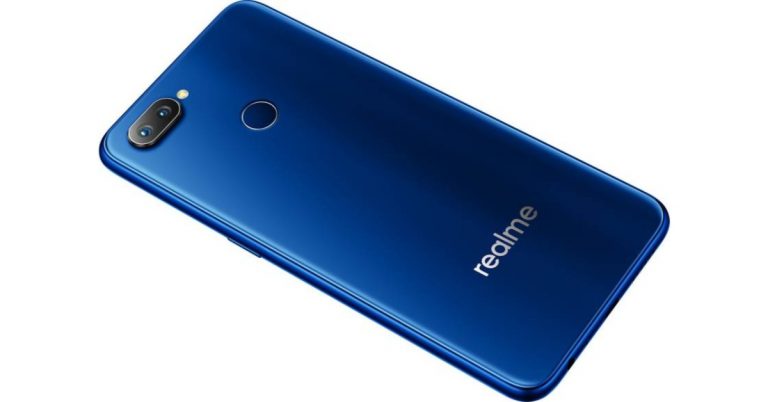



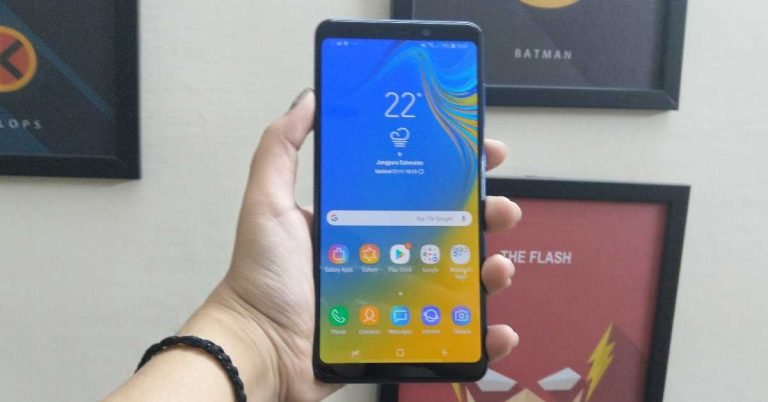
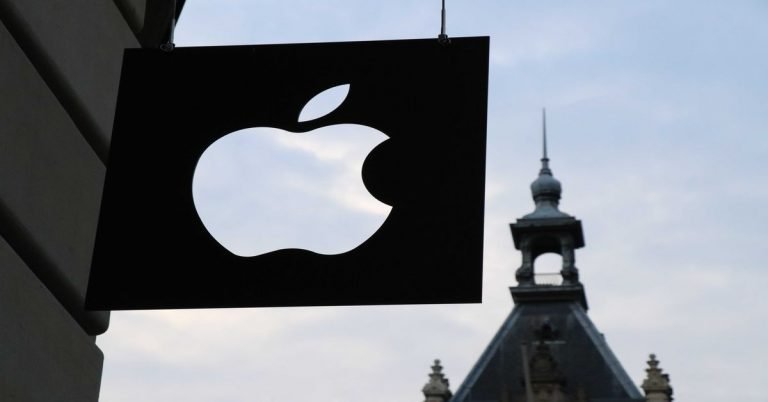
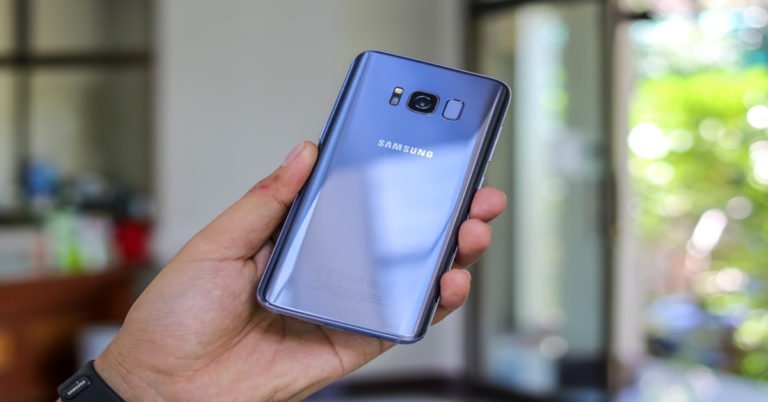

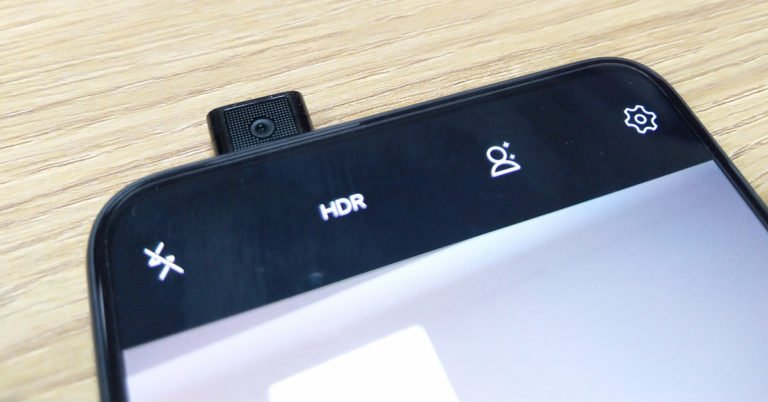

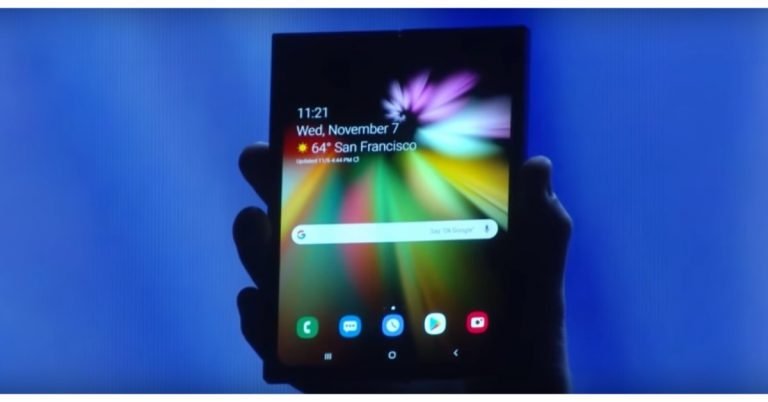


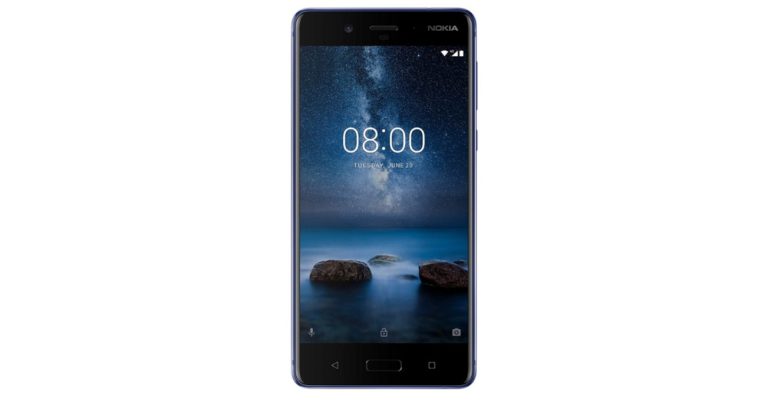
![[Video] CES 2019: Top announcements from the world’s biggest tech show [Video] CES 2019: Top announcements from the world’s biggest tech show](https://www.gadgetbridge.com/wp-content/uploads/2019/01/maxresdefault-4-768x432.jpg)
